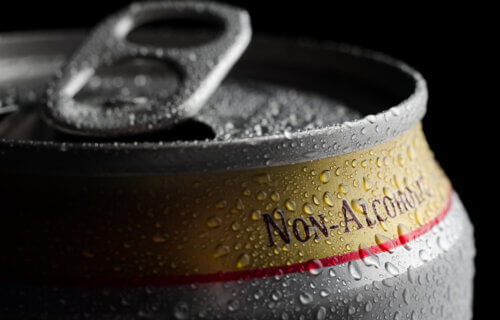NEW YORK — Just a third of Americans are satisfied with their wellness (34%), according to new research. A survey of 2,000 U.S. adults 21 and older finds that two in three think there’s at least some room for improvement when it comes to their wellness (67%).
Thankfully, 70 percent say that caring for their well-being is a priority. A similar percentage agree the same is true about wanting to live a “balanced life” across relationships, fitness and health (67%). This year, Americans rank their priorities for a balanced lifestyle as being more conscious of what their body wants and needs (73%) or consuming alcohol in moderation (46%). Others want to spend more time outdoors (45%) and develop routines to keep themselves on track (41%).
However, many understand that these goals don’t come without drastic changes to their current lifestyle (78%).
How to achieve a balanced lifestyle and improve well-being
Conducted by OnePoll for Giesen Wines of New Zealand, the survey finds that the secret to making lasting changes is employing mindful decisions which consider facets like thoughts and feelings that also fit with their lifestyle (49%). Other beneficial factors for a successful wellness journey include having willpower (48%), perseverance (47%), consistency (42%) and support from others (33%).
Three in five respondents say they are likely to follow lifestyle trends (62%) and 38 percent are more likely to follow the lifestyle trends that go viral. Similarly, 37 percent would keep an open mind to a trend that’s recommended by celebrities or trusted people in their life (31%).
Those surveyed also share that following a new trend or fad may help bring some change to their life (47%) or help them to connect with others who share similar lifestyles (40%) and overall boost their happiness (38%). In fact, 43 percent admit they’ve followed trends in the past five years, especially around exercise (28%), food/dieting (26%) and mindful drinking (20%).
“Wellness comes in many forms, depending on what your goals are,” says Giesen Wines chief winemaker, Duncan Shouler, in a statement. “Prioritizing your wellness is about making lifestyle choices that care for your mind and body. For instance, nearly half of those surveyed are interested in a change like “mindful drinking” (46%) — the practice of being aware of why and how much alcohol you drink — in 2023.
More people looking to cut back on alcohol — or try the non-alcoholic route
In 2022, the market for non-alcoholic wines and beverages grew by seven percent, according to IWSR Drinks Market Analysis. “We see this as being driven by rising consumer demand to seek a more balanced lifestyle through mindful drinking, particularly among younger audiences,” says Shouler.
Some of these have even made a lasting impact, with the average person turning four trends into long-term habits over the course of the past five years. Respondents say the effort these changes take is worth it since it helps them feel organized (58%) and focused (56%) when they start making changes. Ultimately, most say they feel more accomplished (56%) and motivated (54%) once they achieve their wellness goals.
Nearly half of those surveyed also say they’d be interested in trying “mindful drinking” (46%) — the practice of being aware of why and how much alcohol you drink — in 2023.
Fifty-five percent of those who regularly consume alcohol are willing to commit to a “dry” timeframe this year — a period in refraining from drinking alcohol as a personal challenge, like “Dry January” or “Dry July” or “Sober October.” Of those who would consider non-alcoholic alternative options, respondents would opt for non-alcoholic wine (43%) above non-alcoholic beer (24%) or spirits (15%).
But mindful drinking changes don’t need to be so stark — even more respondents who drink alcohol would be interested in participating in a “damp” timeframe where they limit their alcohol intake rather than cut it out completely (69%) in order to meet their wellness goals (22%) or because others in their life are doing it (18%).
“Millions of consumers cut back on alcohol this January as part of a global wellness movement,” says Shouler. “Our number one consumer is an existing wine drinker seeking choices that best suit their lifestyle preferences, including periods of moderation or no-alcohol consumption. With our quality alcohol-removed wines, wine lovers realize an appealing option exists that has fewer calories and allows them to enjoy all the benefits of wine without the alcohol.”
Survey methodology:
This random double-opt-in survey of 2,000 Americans 21+ was commissioned by Giesen Wines between Jan. 19 and Jan. 20, 2023. It was conducted by market research company OnePoll, whose team members are members of the Market Research Society and have corporate membership to the American Association for Public Opinion Research (AAPOR) and the European Society for Opinion and Marketing Research (ESOMAR).



